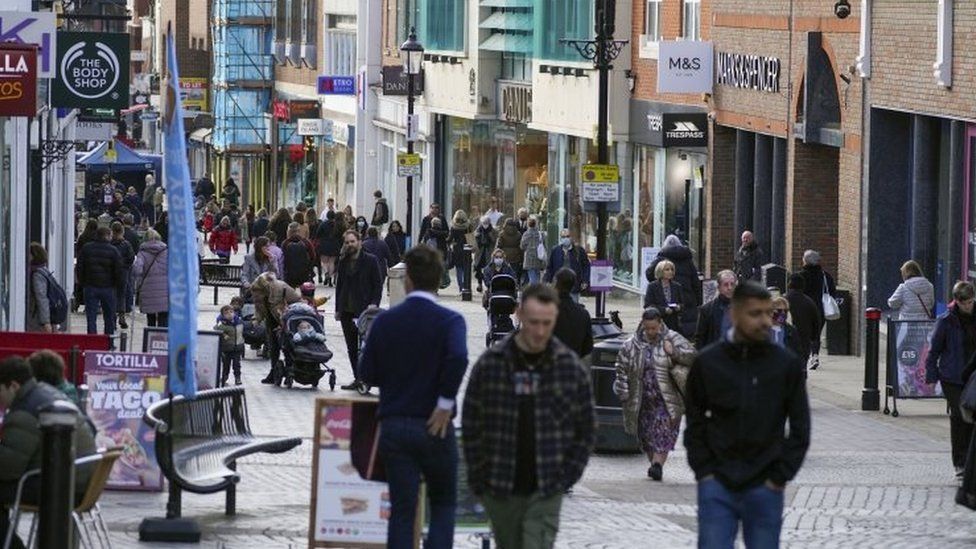ARTICLE AD BOX
By Nick Eardley
BBC political correspondent
 Image source, PA Media
Image source, PA Media
The cost of living crisis is perhaps the biggest issue the next prime minister will face.
When Liz Truss or Rishi Sunak get the keys to Number 10 in just under month, they will have to answer the question: what can the government do to help people struggling with rising bills as winter approaches?
At the moment, the candidates are trying to appeal to 160,000 or so Conservative members, who are choosing their next leader and our next prime minister.
But as the wider electorate watches on, what have the candidates actually promised on the cost of living? Will they be forced to set out more detail about what they are prepared to do? And what does Rishi Sunak's record tell us about his plans?
But let's take the frontrunner first.
Liz Truss's big plan is an emergency budget as soon as she takes office.
She wants to immediately reverse the rise in National Insurance contributions and suspend green levies on energy bills.
Her allies say this will give people more money in their pockets.
But the foreign secretary faced pressure over the weekend when she said she wanted to help people by reducing the tax burden - and "not giving handouts".
Did that mean there would be no more payments to help with energy bills?
Not quite. Ms Truss's team say she is not ruling anything in or out. She will, they say, look at what is needed and what is possible in her emergency budget.
Image source, Reuters
Image caption,Liz Truss wants to see an emergency budget if she's elected leader
There is an important political context here.
Lower taxes and a smaller state (with fewer "handouts") are popular with many Tories.
But what about the wider electorate? In particular, what about those former Labour voters who backed the Conservatives at the last election for the first time?
There are also criticisms that her tax cut plans will benefit the wealthy more than those on the breadline.
Pensioners don't pay national insurance - nor do unemployed people or those earning under £12,500. They will feel the impact of rising bills more than most, but they won't feel the benefits of the tax cut.
The way national insurance works, the more you earn, the more a cut will benefit you.
Some will ask: is that the best way of targeting support?
Team Sunak don't think so.
Image source, PA Media
Image caption,Rishi Sunak has promised to step in to help people on lower incomes this winter
He hasn't pulled any punches in an article for The Sun newspaper, saying that Ms Truss's plans (including a plan to cancel an increase in corporation tax) are "a big bung to large businesses and the well-off, leaving those who most need help out in the cold". He writes that bolder action is needed.
So what is he planning in his first weeks as prime minister? He has said he will scrap VAT on energy bills. But beyond that, he hasn't offered much in the way of specifics.
Mr Sunak's supporters say it will depend on what happens with energy bills in the coming days. They have said he can be trusted based on his record as chancellor.
But remember - Mr Sunak often faced a lot of pressure to act before he took decisions to help those on the lowest incomes.
He was criticised after the Spring Statement earlier this year for not doing enough to help people with increasing prices. Many Tory MPs urged him to act - and within weeks he announced further new cost of living support.
Mr Sunak initially resisted Labour's calls for a Windfall Tax to help pay for help - before eventually agreeing to one.
He has also used furlough as an example of decisive action. But remember he was criticised for being too slow to extend it towards the end of 2020.
In fact, Mr Sunak resisted extending the scheme at first.
And then there's this campaign. Mr Sunak has been criticised for saying he'll scrap VAT on energy bills - given that he didn't do it when he was in the Treasury.
There are four weeks to go in this leadership contest. There will be pressure on both candidates to give more details on what they will do to help with rising bills - and to spell out how they'll pay for it.

 2 years ago
29
2 years ago
29








 English (US) ·
English (US) ·